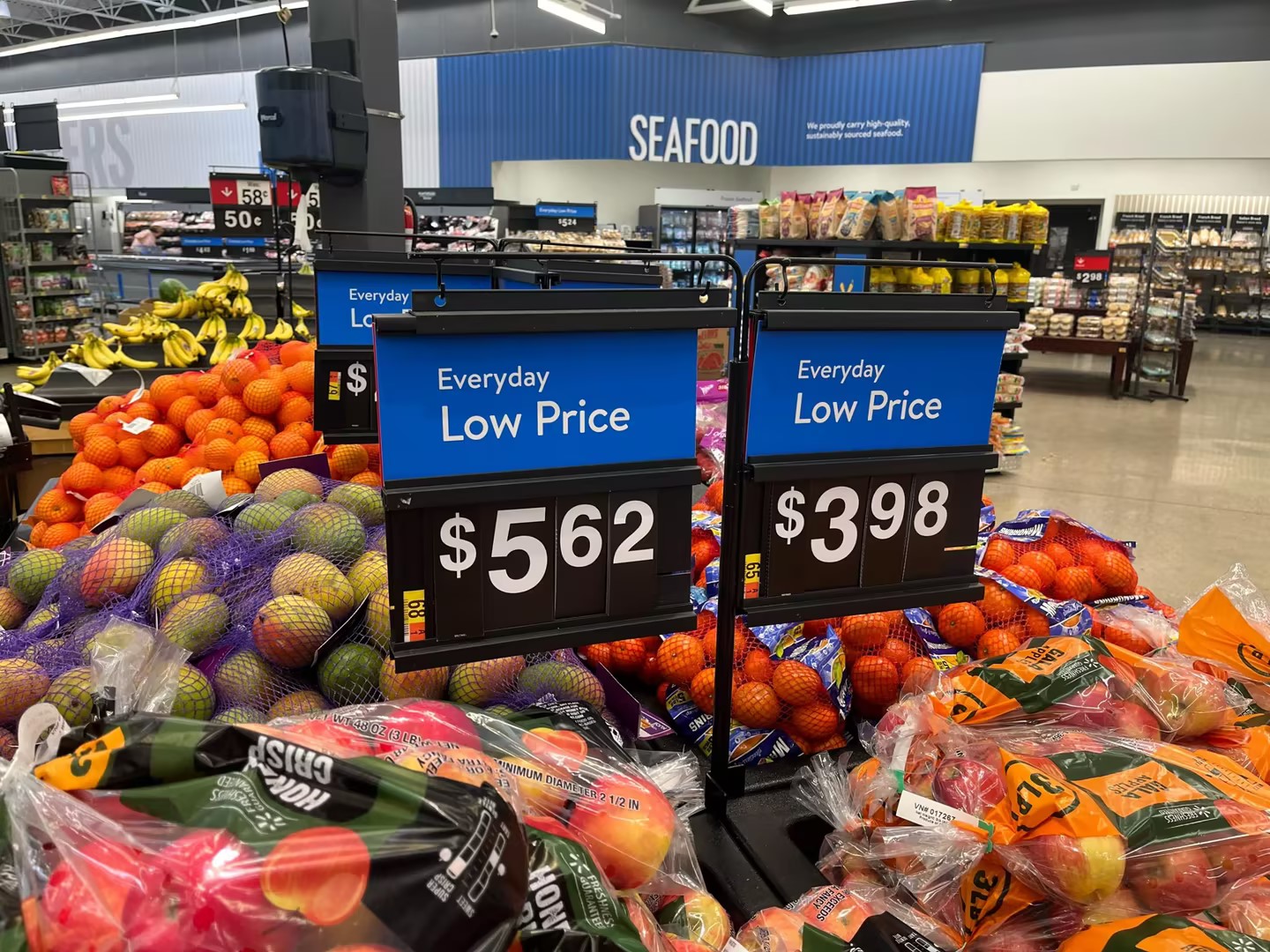
After Trump announced the implementation of reciprocal tariffs, analysts from the internationally renowned UBS Group said that in response to the US tariffs, US retailers may need to raise prices by 10% to 12%. This forecast caused an uproar in the business field, which is not only related to the "contest" issue between countries in the political field, but also involves the survival risks and challenges of American retailers.
Since the new president of the United States, Trump has launched a series of tariff policies, and various tax increases have brought certain risks to the relevant industries, and its tax increase behavior has also been criticized by public opinion from all walks of life. According to the tariff list announced by Trump on April 2, the United States will impose more than 30 percent of "reciprocal tariffs" on Cambodia, Vietnam, Thailand and other countries. According to statistics, only 2.5% of clothing and 1% of footwear in the United States are locally manufactured, and Asian countries such as Vietnam are the main source of imports of clothing, shoes and hats in the United States.
Focusing on specific brands, Nike, Lulu Meng and other well-known clothing brands more than 35% of the production capacity gathered in Vietnam, while the American Apparel and Footwear Association also said that about 97% of the clothing and shoes purchased in the United States are imported. In this scenario, UBS expects U.S. retailers to raise prices by 10 to 12 percent, and industrial brands will be forced to raise prices as brands cluster outside the United States.
Not only shoes and apparel retail industry, agricultural products retail market and food and beverage retail industry may also see price increases. Target will raise prices on fruits and vegetables as soon as this week, according to Chief Executive Officer Brian Conider. James Quincey, executive of beverage giant Coca-Cola, said higher tariffs could lead to higher food prices for consumers.
In the face of Trump's series of tariff policies, some US retailers have taken relevant countermeasures, but unfortunately, due to the instability of the policy, whether the countermeasures of some retailers can have a favorable impact on the enterprise itself is worth thinking and questioning. The warehouse of ITS Logistics company in Fort Worth, Texas, because of its superior geographical location near Mexico, has become the choice of many large retailers in the United States to stockpile goods in advance, and many American retailers have chosen to "stockpile goods in advance" as a measure to deal with tariffs. Large quantities of goods have been bought in advance from places like China and Mexico to try to slow the rise in retail prices caused by Trump's tariffs. However, from a broader perspective to examine this response, on the one hand, in advance to stockpile goods can only solve the temporary retail commodity price crisis, on the other hand, many small and medium-sized dealers lack storage capacity, even to deal with the very short-term business risks caused by tariffs, retailers are "not willing to do enough."
Some US retailers have also chosen to launch pre-tax promotion activities to deal with the risk challenges brought by tariffs. Online furniture retailer Finally Home Furnishings has taken to Facebook to remind customers to order now before prices "double." Showerhead brand JolieSkin emailed customers about possible price increases after the tariffs go into effect. Outdoor retailer Tarptent is promoting Black Friday sales. However, from a macro perspective, the behavior of promoting goods can only play a "temporary" role in the operation of enterprises, and promotion can not solve the long-term decisive factor that determines the survival and development of enterprises, that is, the control and improvement of costs. In addition, it is difficult for promotion activities to fundamentally improve the core competitiveness of retail enterprises, and the business risks caused by Trump's tariff policy still need to be solved by the heads of retail enterprises.
How to properly deal with the risks and challenges brought by Trump's tariff policy to the retail industry? This problem deserves the thinking of every American retail business leader, from footwear retail, agricultural retail to food and beverage retail and other relevant industries, whether it is to stock up in advance or promote promotion, business leaders should actively seek solutions to find a solution to the survival and development of enterprises under the risk of tariffs. Under the background of Trump's high swing of the "tariff stick", the exploration and search of every retail business leader is worth waiting and seeing.

Since 2022, the Fed has cumulatively reduced its balance sheet by $2.4 trillion through quantitative tightening (QT) policies, leading to a near depletion of liquidity in the financial system.
Since 2022, the Fed has cumulatively reduced its balance sh…
On December 11 local time, the White House once again spoke…
Fiji recently launched its first green finance classificati…
Recently, the European Commission fined Musk's X platform (…
At the end of 2025, the situation in the Caribbean suddenly…
The U.S. AI industry in 2025 is witnessing a feverish feast…